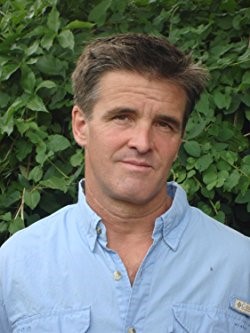Course Feature:
Investigative Nonfiction: Environmental
Issues in the American West
Maximilian Werner, associate professor/lecturer of writing and rhetoric studies, was inspired to create the course, Investigative Nonfiction: Environmental Issues in the American West (Writing 3420), after his two-and-a-half-year venture of tracking a wolf pack in Centennial Valley, MT. The investigative work ultimately served as the basis for his latest book “Wolves, Grizzlies, and Greenhorns -- Death and Coexistence in the American West.” Below, Professor Werner answers questions about the course, its influences and what students will learn by enrolling.
Who is this course for?
This course is for anyone who cares about the natural environment and wants to become a more thoughtful and effective writer.
How did your academic interests influence this course?
Although I teach several courses for the university, I've spent the majority of my career writing about various environmental issues. Over the last few years, however, my focus has turned to the mistreatment of apex predators, particularly wolves and grizzlies, which are often killed illegally. Even though it is legal to hunt/kill wolves in Idaho, Montana and Wyoming (grizzlies are an endangered species and therefore cannot be hunted), people disagree about whether or not doing so is right, necessary, sustainable and/or scientific. Unfortunately, wildlife as a whole is managed as a resource for the benefit and exploitation of humans, and this often results in a conflict between human desires and the rights of other animals, namely, to live free from persecution. Writers go where the tension is, and tension lies at the heart of our relationship with the nonhuman, natural world.
What do you hope students will take away from this course?
I hope they realize the complexity of environmental issues and then use their understanding to become more critical, thoughtful and effective communicators.
Why should students enroll in this course?
Because it will impress on them the fact that while there is nothing more important or pressing than our understanding of and care for the natural world (everything depends on it), people disagree on how best to relate to it, which in turn creates the opportunity, indeed, the necessity to become better communicators.

Maximilian Werner
Associate Professor (Lecturer), Writing and Rhetoric Studies
